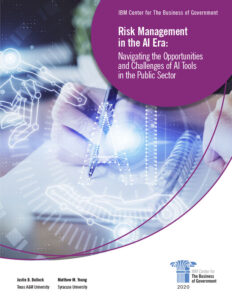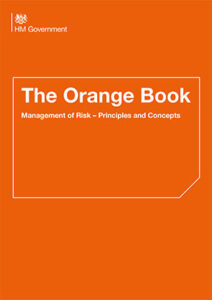View Session Recording
Speakers: Tanim Awwal, Dept. of Housing and Urban Development (HUD)
Emily M. Kornegay, HUD
Jonathan Lash, HUD
Sarah (SJ) Lynch, U.S. Food and Drug Administration (FDA)
Jen Wade, FDA
Moderator: Liz Ryan, Export-Import Bank
The FDA and HUD panelists will provide strategies and tactics that support risk-informed decision-making. Both agencies’ speakers will describe changes they have made to their FY 2023 Budget processes to better communicate on and manage enterprise risks. These include both tools and templates as well as ideas on relationships to make sure to foster.



 Artificial Intelligence (AI) has moved into the mainstream of businesses and government.
Artificial Intelligence (AI) has moved into the mainstream of businesses and government.